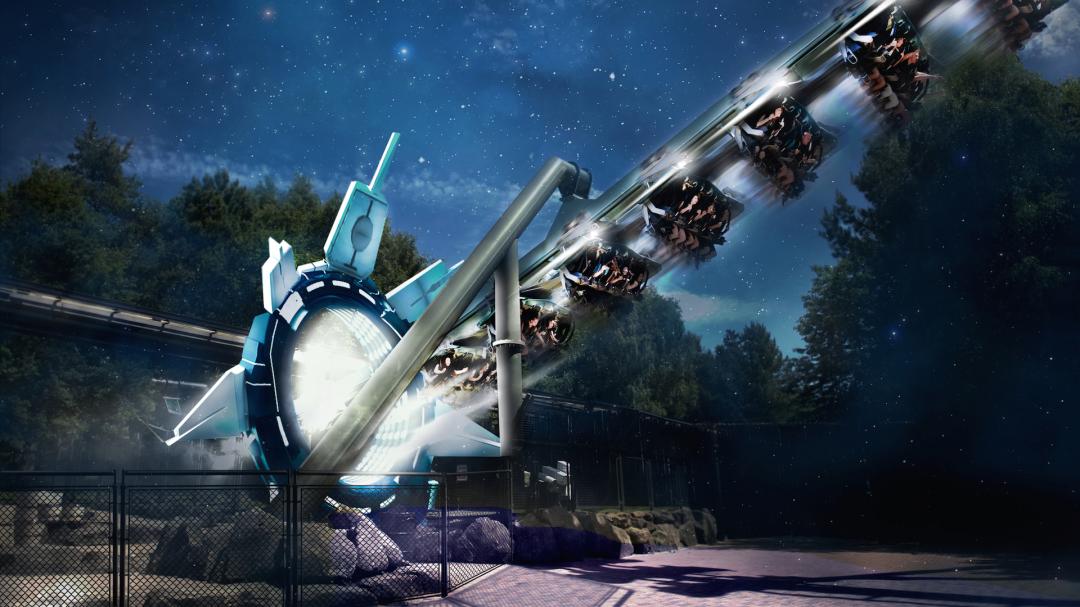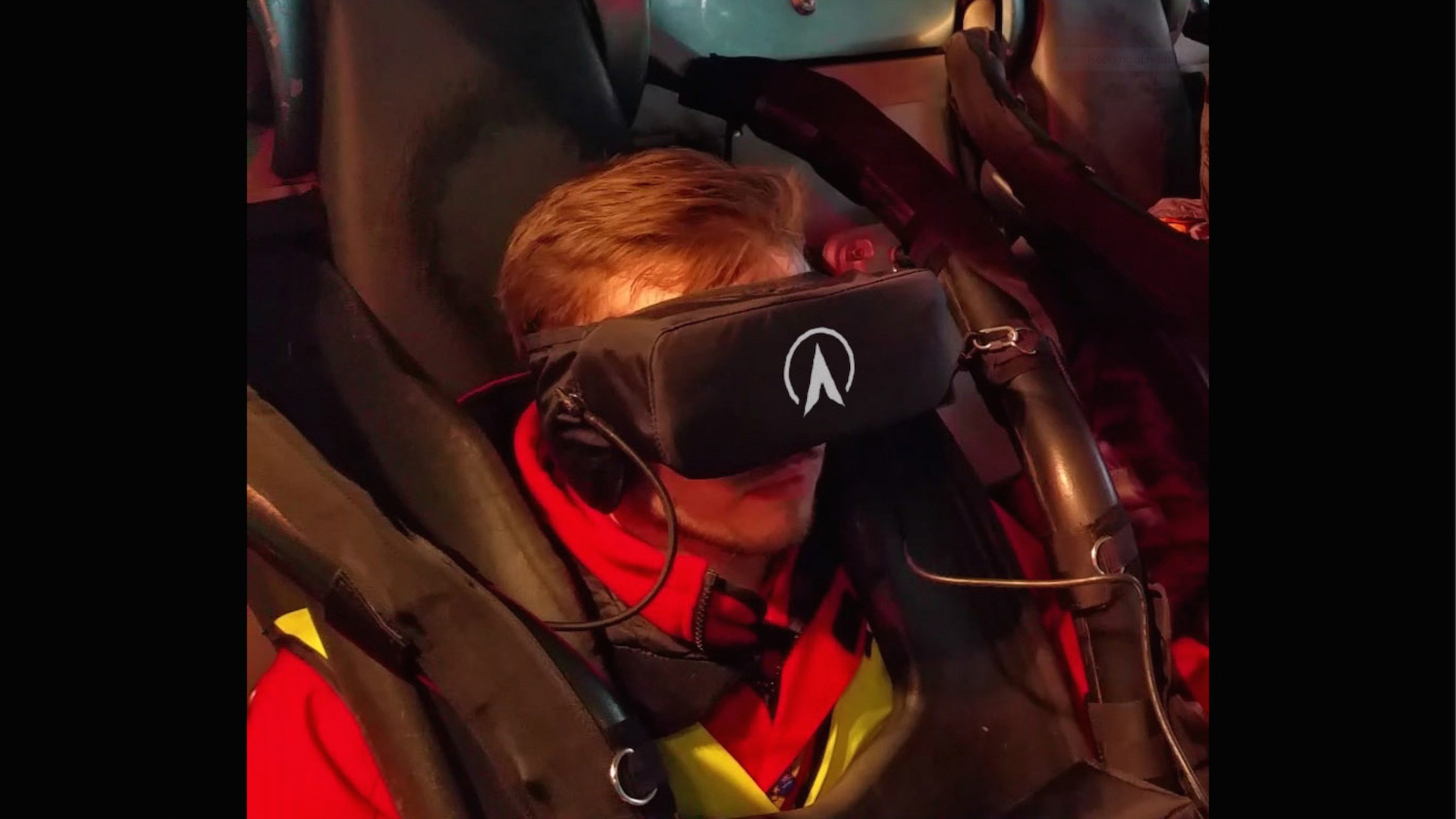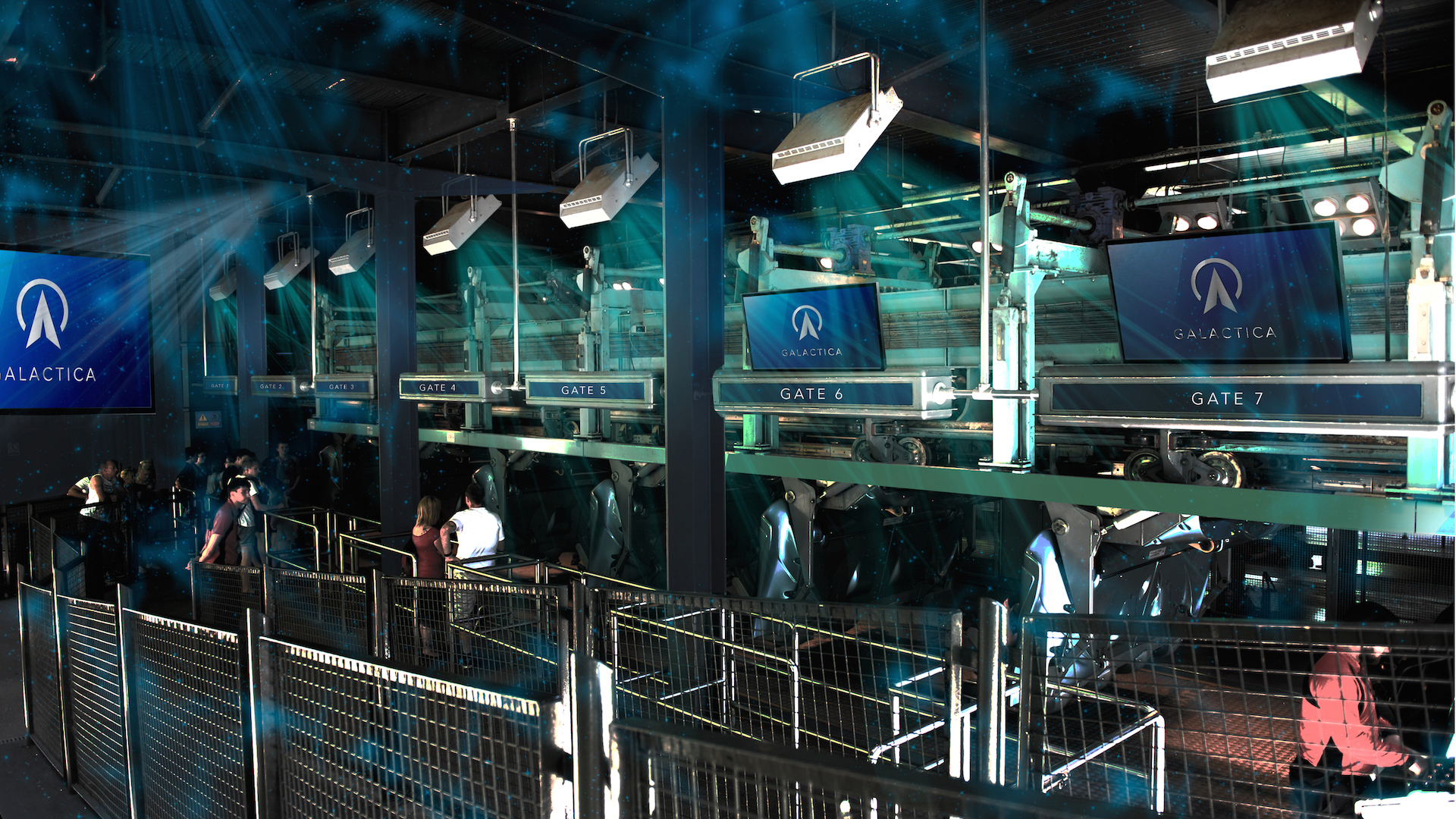This VR rollercoaster is coming to Alton Towers in April 2016
Probably a bit too big for your lounge…

If rollercoasters just remind you of being taken to dilapidated seaside towns, Alton Towers has a surprise for you – it’s launching a VR rollercoaster that promises to rocket its riders into space.
Galactica, which is based on its existing Air ride and will launch in April 2016, will see you strap on a Samsung Gear VR headset and fly into the stars while experiencing greater G force than real astronauts feel during a real rocket launch. The ride will the first in the world to use a bespoke ‘Vector VR’ system from Figment Productions, which has made both real-time and pre-rendered visuals for the likes of Sea Life and Lego.
With gaming VR systems still working out the teething problems of latency and motion sickness, we spoke to Figment’s Director Simon Reveley to find out how it’s made Galactica into an experience that could make the likes of Adrift feel a bit tame.
A sick solution

“Being in a moving vehicle with synchronised VR is the best way to experience travelling at speed in VR,’ he tells us. “We use a powerful combination of custom hardware and software in Vector to ensure that the VR world is perfectly synchronised, so your vision and inner ear remain on good terms.”
How does it keep the visuals synchronised? Next to each rider’s seat is a control sensor, which is the same one the makers used to map the track in 3D. “As the rider whizzes around the track the sensor readings are continually analysed to ensure that what they’re seeing is totally in tune with the movement of the coaster,” explains Simon.
In fact, Figment says there are good reasons why rollercoaster VR will be both a cut above standard VR and won’t give you an instant replay of your lunch. “The huge benefit of Galactica’s shoulder restraints is that, unlike on some rollercoasters, you can’t move from side to side, ” says Simon.
“When you’re using mobile VR with no positional tracking it can produce a bit of motion sickness. But we actually take over the positional tracking through the coaster – the coaster is your positional tracking. So it’s mobile VR but with the ultimate positional tracking.”
Next-Gen VR

The downside compared to VR games is that the ride, which takes 28 passengers per car, only lasts 189 seconds. But Figment Productions reckon the custom graphics will make it an Oculus-trumping experience. “We’ve done many projects with real-time, game engine stuff, and we also do a huge amount of pre-rendered, where we can really raise the visual quality,” says Simon.
“For Galactica, we’re actually blending the two. We’re not just limited to having real-time graphics. We’ve got over that by mixing some pre-rendered elements into a real-time environment. I think people will be stunned when they see what we’ve done with the VR content in terms of graphic quality,” he claims.
And what about the slightly less compelling hygiene issues of strapping on a headset that’s just been used by hundreds of other ‘astronauts’? “We’ve spent a lot of time considering hygiene and have developed some customs hardware solutions with our unique headstrap system. There’s also a special tethering system to ensure that the systems stay where they belong – on the ride,” warns Simon.
So while you can shelve any ideas about wandering off with a Gear VR headset, Galactica is promising to be a good virtual reality taster for those hovering over the pre-order button. We’ll see you in the queue.



